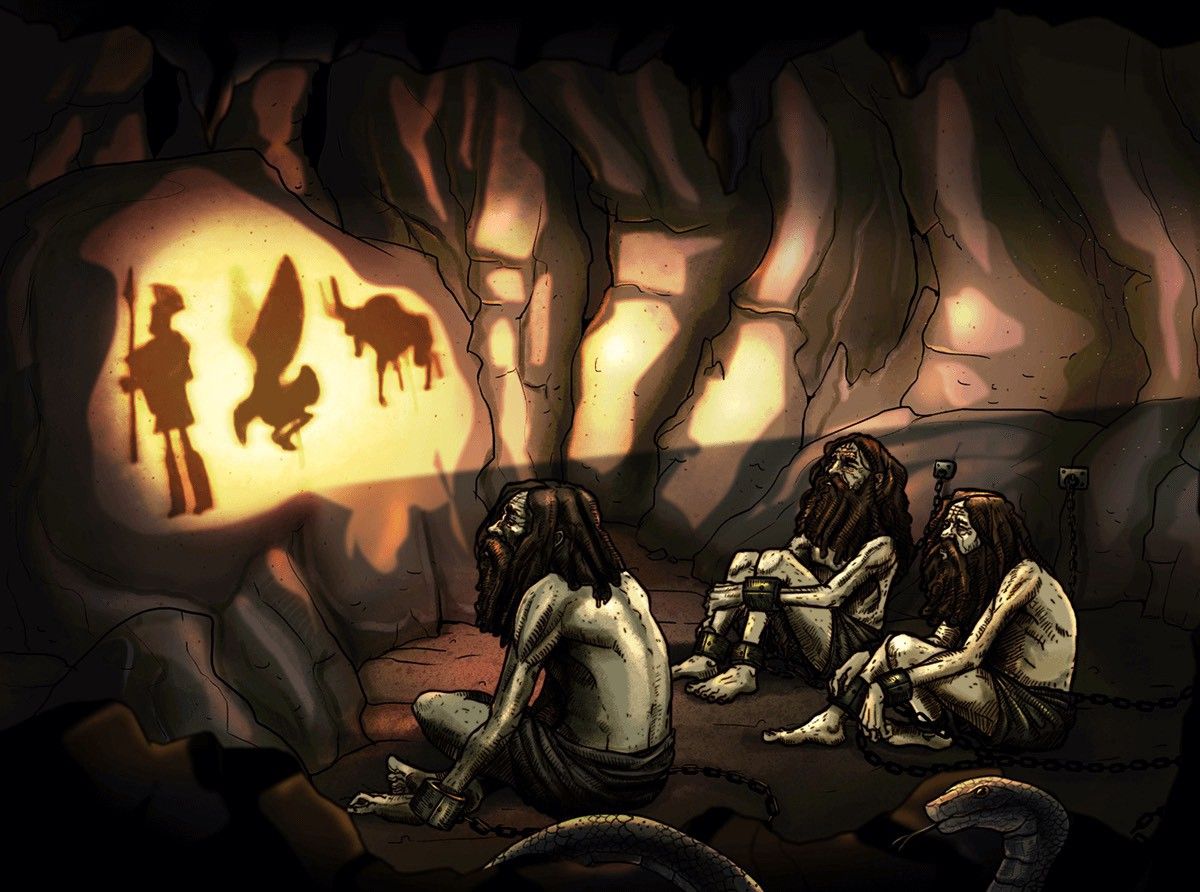Allegory of the cave

Plato, one of the three great philosophers of ancient Greece, in the seventh volume of his political philosophy work "Republic of China", used Socrates' mouth to tell a famous cave metaphor (also known as: cave allegory) to explain the only way to emancipate the mind. Become an immortal classic, so what is the cave metaphor?
This metaphor describes several prisoners who have been imprisoned in a cave since birth, and know nothing about the outside world. They face a wall in the cave all day long and cannot turn around, nor can they know that the entrance of the cave is not far behind. Their dwellings were illuminated by torches burning high behind them. The shadows and objects that people walked through outside the cave, the shadows of beasts, will be projected on the walls. They feel that these shadows are all things in the world, and they will not think of anything other than shadows. And a certain prisoner also won an award for exploring these so-called light and shadow knowledge to find out the law.
At this time, a prisoner was loosened, and he stood up, turned to look at the exit, and saw the prototypes of these shadows he had seen before. Under the stimulation of strong light, he was in great pain and became confused. Compared with the familiar light and shadow in the past, he believes that the real objects he sees are not realistic. Therefore, he wishes to return to his accustomed position, believing that only the shadows he sees on the cave walls are the truth.
If someone else deadlifted him down the rough slope until he was pulled out of the cave, he would find it painful and annoyed to be forced to walk; I couldn't open my eyes because of the sun, and I couldn't see anything at first. Slowly he will get used to the new things he sees. First identify the light and shadow, then the reflection in the water, and finally the people and things themselves. Finally, he dared to look directly at the sun, and understood everything in the world, the seasons and the cycle of years.
With these experiences and knowledge, he is no longer willing to go back to the cave to explore the knowledge of light and shadow there. At this time, he would also think of his imprisoned companions and feel deeply sorry for them.
He could choose to live in the world as a poor but real human being, and would not go back to agree with the prisoners or live that way all over again. You can also choose to return to the cave and tell your companions the real world.
Suppose he returned to the cave, his eyes would need to get used to the darkness again to see the shadows, then the other prisoners in the cave would think that he had blinded his eyes on it. They would laugh at his intentions to "evaluate the shadows," and even think the thought of leaving the cave was sinful and unworthy. They would even kill him if he still tried to free them and bring them to the ground.
This is Plato's famous allegory of the cave. I hope you all experience the mystery for yourself.
Like my work? Don't forget to support and clap, let me know that you are with me on the road of creation. Keep this enthusiasm together!
